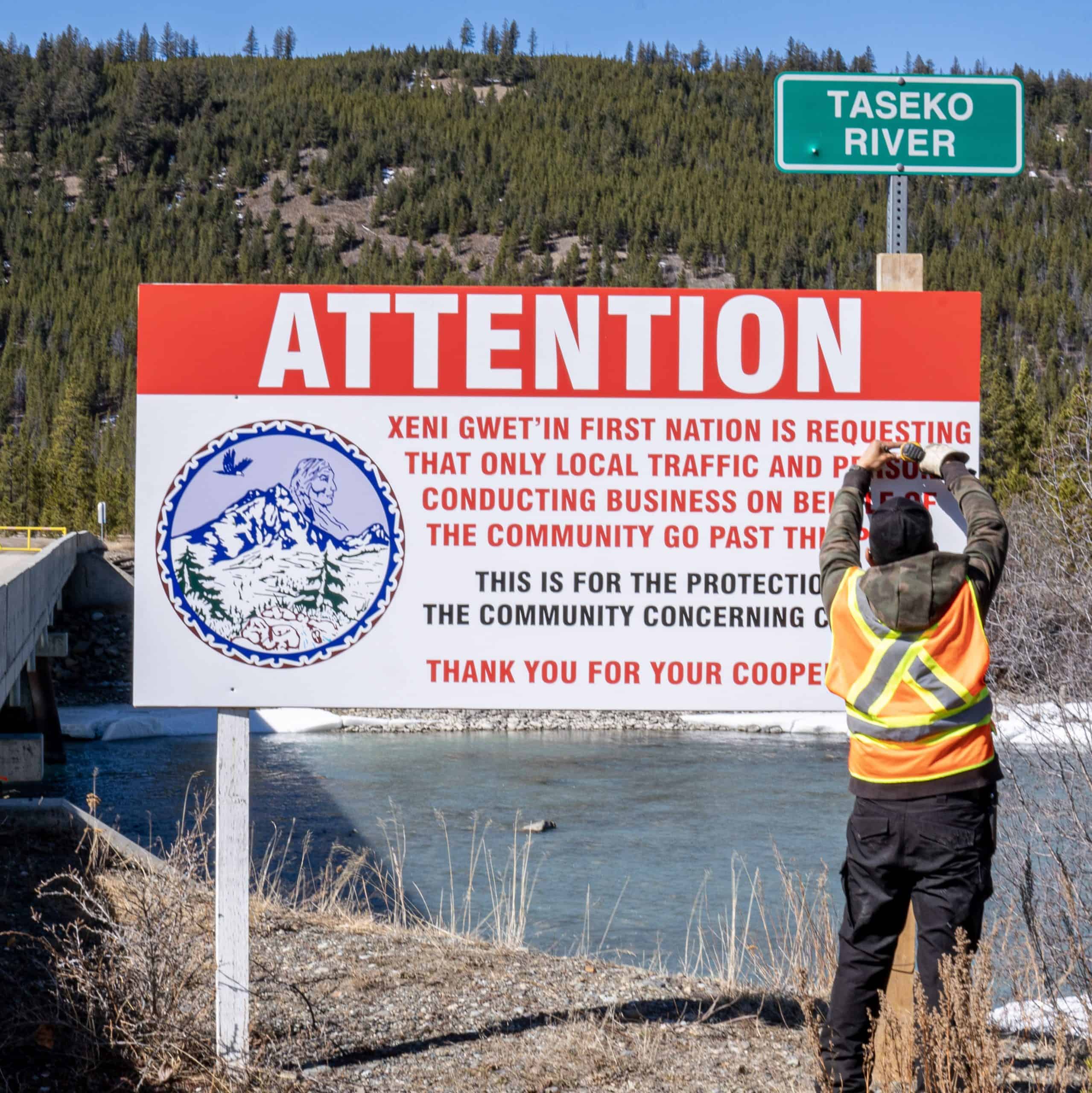Tŝilhqot’in National Government Emergency Services Department
The TNG Emergency Services Department was created to assist Tŝilhqot’in communities in being prepared for emergencies and supporting each other during emergencies.
Since the devastating 2017 wildfires, TNG has supported communities in numerous emergencies from wildfires and flooding to COVID-19. We are here to support. Please contact us if you have ideas on how we can better serve you.
Contact
- TNG Emergency Services: 250-392-0735 Email: tngemergencyservices@tsilhqotin.ca
- Media Contact: Phone: 250-302-3979
- Ambulance, Fire, Police: Phone: 911
- Report a Wildfire: Phone: (Toll-Free) 1-800-663-5555 , or *5555 on a cell phone to report wildfires, smoke columns and violations of wildfire regulations in British Columbia.
- Wildfire Information: Phone: 1-888-336-7378 (3FOREST)
- Cariboo Fire Centre (Williams Lake): Phone: 250-989-2600, Wildfire Service Website: https://www2.gov.bc.ca/gov/content/safety/wildfire-status
- River Forecast Centre (Flood Warnings & Advisories): Website: https://www2.gov.bc.ca/gov/content/environment/air-land-water/water/drought-flooding-dikes-dams/river-forecast-centre
- Poison Control: Phone: (Toll-Free) 1-800-567-8911, Website: http://www.dpic.org
- Alcohol & Drug Information & Referral Service: Phone: (Toll-Free) 1-800-663-1441, Website: https://www2.gov.bc.ca/gov/content/health/managing-your-health/mental-health-substance-use/crisis-and-information-lines
- HealthLink BC: Phone: 811, Deaf or hearing impaired (TTY) Phone: 711, Website: https://www.healthlinkbc.ca/
- Kelty Mental Health Resource Centre: Phone: (Toll-Free) 1-800-665-1822, Website: https://keltymentalhealth.ca/
- Crisis Intervention and Suicide Prevention: Phone: (Toll-Free) 1-800-SUICIDE (1-800-784-2433), Mental Health Support: Phone: 310-6789 (no need to dial area code), Website: https://www.crisislines.bc.ca/
- Kids Help Phone: Phone: (Toll-Free) 1-800-668-6868, Website: https://kidshelpphone.ca/
Drug Crisis
The TNG EOC is currently activated to a level 1 due to the current state of emergency over the drug crisis in the territory and surrounding areas.
Calls to Action
As the world changes through the climate crisis and increasing pressure on resources, the Tŝilhqot’in people and been adapting and mitigating the impacts to the people and way of life. Two historical reports featured below provide calls to action for all levels of government to address the issue of wildfires and future pandemics.
The Fires Awakened Us Report (2019)
COVID-19 Report (2021)
Collaborative Emergency Management
Canada, British Columbia and the Tŝilhqot’in Nation are partners through the Collaborative Emergency Management Agreement, 2018 (CEMA), a historic tripartite agreement which commits to affirming the Tŝilhqot’in Nation and Tŝilhqot’in communities as “true partners” with the provincial and federal governments in emergency management. CEMA recognizes systemic racism in emergency management and reflects a shared commitment to ensuring that the Tŝilhqot’in people are protected by efficient, effective, and seamless emergency services, on par with those of non-Indigenous communities in the province. In practice, CEMA provides a forum for the three governments to work together to implement changes necessary to reduce impediments to Tŝilhqot’in governance and to build a transparent and collaborative multiple-agency emergency response system to protect Tŝilhqot’in citizens, property and territory.
Significantly, the agreement supports the Tŝilhqot’in Nation’s efforts to build a seamless collaborative emergency management response system that reflects Tŝilhqot’in values, needs and jurisdiction. The pandemic presented an urgent case for such a system, one that adequately addresses the heightened needs of the Tŝilhqot’in.

Chief Joe Alphonse speaking about the Collaborative Emergency Management Agreement (CEMA) (2022)
